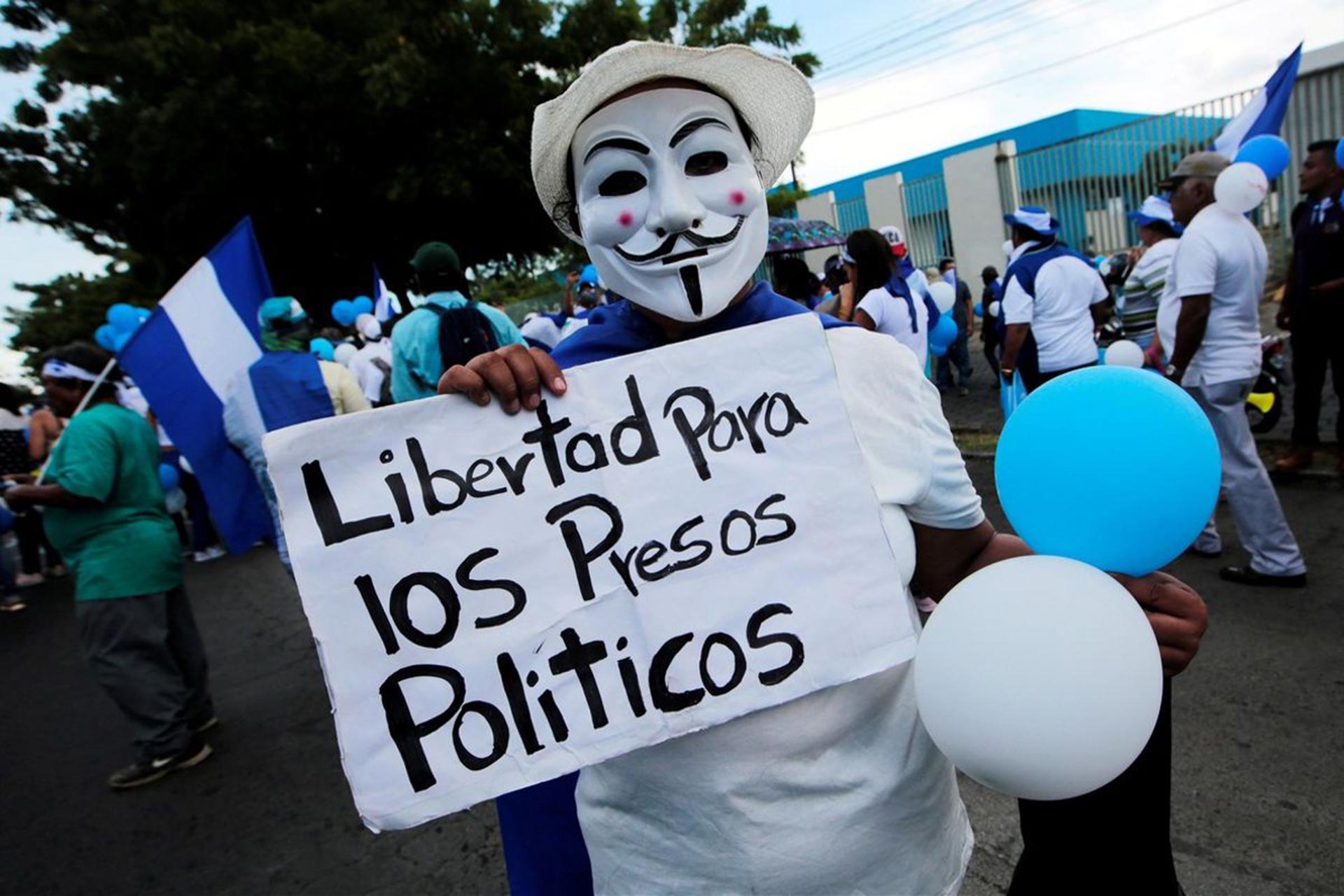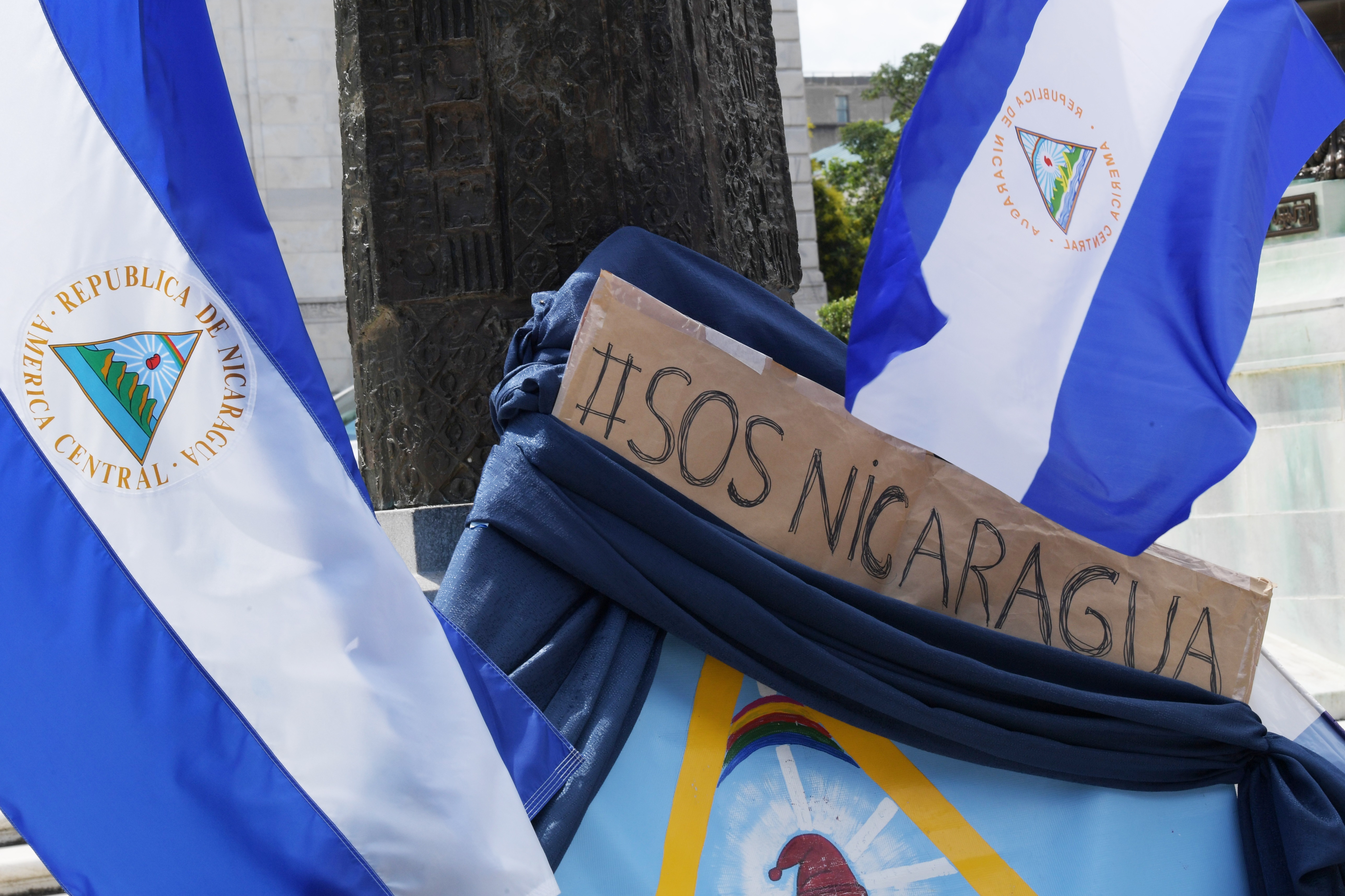
The Secretary General of the Organization of American States (OAS), Luis Almagro, on Tuesday expressed his concern for prisoners in Nicaragua and urged the international community to “increase pressure” to end the “system of repression and torture.”
“Political prisoners don't have enough access to sunlight. They do not have access to any reading material or writing elements. No correspondence is received. They do not receive adequate medical care, sometimes they do not receive it at all. And the diet is insufficient, so everyone has experienced weight loss that puts their health at risk,” says Almagro in a statement.
Human rights organizations estimate that at least 170 opponents have been detained since the 2018 anti-government protests, including seven potential electoral rivals of Daniel Ortega, who won the November presidential elections for a fourth consecutive term.
The Secretary General claims to have recently met with Nicaraguan human rights activist Berta Valle, to discuss the “abuse and suffering experienced by political prisoners” in Nicaragua, including her husband, Felix Maradiaga.
In the case of Maradiaga, “his wife is aware of ill-treatment received, which has contributed to the deterioration of her physical and mental condition”, Almagro denounces.

Faced with this situation, he urged the international community “to increase diplomatic pressure on the Managua regime and to multiply the demonstrations of solidarity with political prisoners and their families”.
Almagro affirms that the Nicaraguan regime “must dismantle this true system of repression and torture” and considers that “human rights violations merit the intervention of international justice in order to carry out a competent investigation, settle responsibilities and administer reparations.”
Political prisoners have been sentenced to “8 to 13 years of imprisonment, all arbitrary and unjust” for exercising “their right to protest” or to “participate in politics, that is, to elect and be elected”, is outraged Almagro, who claims that they are not allowed to receive visits as often as international standards set. Maradiaga has only had one in 55 days, according to him.
Nicaragua requested to leave the OAS in November, after the organization's General Assembly considered the elections illegitimate. The process lasts two years, during which time Nicaragua must comply with its obligations.

Arturo MacFields, who was the Nicaraguan ambassador to the OAS, denounced in March that his country was a “dictatorship”, after which he was dismissed.
Nicaragua's Vice President Rosario Murillo said Monday that the demonstrations against her husband, dictator Daniel Ortega,” they will never return”, referring to the popular revolt that broke out in April 2018 and which was described as an attempted coup d'état by the Sandinista regime.
“Those days, which will never return, is the promise we have made to each other,” Murillo said in a speech.
In April 2018, thousands of Nicaraguans took to the streets to protest controversial social security reforms, which later became a demand for Ortega to resign because he responded with force.
The protests, described by the regime as an attempted coup d'état, left at least 355 dead according to the Inter-American Commission on Human Rights (IACHR), although local agencies raise the figure to 684 and the regime recognizes 200.
(With information from AFP)
Keep reading:
Últimas Noticias
Debanhi Escobar: they secured the motel where she was found lifeless in a cistern

The oldest person in the world died at the age of 119

Macabre find in CDMX: they left a body bagged and tied in a taxi
The eagles of America will face Manchester City in a duel of legends. Here are the details

Why is it good to bring dogs out to know the world when they are puppies




